Special Study: The German Great General Staff
Among the things proscribed by the military articles of the 1919 Treaty of Versailles was the Great General Staff (Großgeneralstab) of the German Army. The treaty stipulated that it was to be abolished, the victorious Allied powers believing that it was a key component of the “Prussian militarism” they sought to eradicate. And this was true in the sense that the Great General Staff was the intellectual center of the German Army: the institution that above all others embodied its corporate personality. And for that reason, the victors’ proscription was only partly effective, for though the administrative framework of the Great General Staff was dismantled its spirit lived on.
The origins of the Great General Staff may be traced to the seventeenth century and the reign (1640-88) of Frederick William, Electoral Prince of Brandenburg, remembered in history as the Great Elector—der Große Kurfürst. At the conclusion of the Thirty Years War the Great Elector's domain, Brandenburg-Prussia, was a hodgepodge of disconnected territories stretching across northern Germany from East Prussia to the Rhine. To provide his patchwork state with a unifying institution the Great Elector created a standing army, paid for by the central government and officered by the Junker nobility. This force, some 45,000 men strong by the time of his death, was to become the Prussian and later the German Army.
Such a standing army required administrative support and to provide this the Great Elector established a Quartermaster-General’s Staff, responsible for military engineering, fortifications, selection of routes of march and other technical matters; a Paymaster-General’s Department; a Commissary-General’s Department (supply), an Enforcer-General (military police) and a Master-General of Ordnance (design and provision of weapons). Together these staffs and departments came to be called the General Staff Service (Generalstabsdienst).
The growth of Prussia and its army in subsequent reigns caused these departments to be enlarged and they were invested with additional responsibilities, for instance the collection of military intelligence and the preparation of serviceable military maps. But there was as yet no body of staff officers responsible for operational military planning, nor a chief of staff to advise the commander-in-chief, i.e. the monarch. Frederick the Great (King Frederick II; reigned 1740-86) commanded the army in person and was in effect his own chief of staff. But during the Seven Years War, theaters of operations were scattered, and Frederick sometimes found himself compelled to devolve responsibility on subordinate commanders. In such cases he assigned a staff officer with the title of adjutant-general to the commander's headquarters, who served as the monarch's representative and functioned somewhat in the manner of a chief of staff.
In Frederick's time the officer corps of the Army remained the preserve of the landed aristocracy—the Junker class. But significantly, the Generalstabsdienst was an exception to this rule. Much of its work required technical qualifications that officers of noble background mostly lacked. So—grudgingly—men of middle-class background were accepted into those arms and services requiring a technical education, like the engineers, the artillery, and the Quartermaster General's Staff. Relatively few such officers were to be found in the Prussian Army up to the time of the French Revolution, but their existence was a portent of the future.
At the end of the eighteenth century, the staff functions of the Prussian Army were embodied in the Ober-Kriegs-Kollegium (Supreme War Council), of which the Quartermaster-General's Staff was a part. It was at this time that the officers of the Quartermaster-General's Staff first received a distinctive uniform: light blue coat with red facings, dark yellow waistcoat and trousers. But neither the Ober-Kriegs-Kollegium nor the Quartermaster-General's Staff bore responsibility for operational military planning or possessed any powers of command. The development of that kind of general staff was the result of a great military disaster.
In 1806-07, Prussia met catastrophic defeat at the hands of Napoleon. The Prussian Army, still organized and commanded in accordance with the principles laid down by the great Frederick, proved unable to cope with the new, flexible tactics pioneered by the mass armies of revolutionary France and employed to devastating effect by the warlike Emperor of the French. Defeat on the field of battle was absolute and it reduced the once-proud Kingdom of Prussia to the status of an abject Napoleonic vassal, its army shattered, its territory occupied by the victor. But that defeat also sparked a reform movement, civil and military, that was to lay the foundations of the Great General Staff.
The driving force was provided by the circle of military reformers who gathered around Gerhard von Scharnhorst, a Prussian officer of Hanoverian origin. The military reforms proposed by this group (which included Carl von Clausewitz; see below) called for the replacement of the old mercenary army by a national army based on the principle of universal military service, backed up by a people’s militia (Landwehr). These were radical departures from tradition that provoked much resistance from the conservatives who arrayed themselves around King Frederick William III. In the eyes of such men, universal military service and a people's militia seemed tantamount to social revolution.
Even more radical, however, was Scharnhorst’s proposal for a General Staff with responsibility for military planning, headed by a Chief of Staff to serve as the monarch’s responsible military adviser. Moreover, this new General Staff would provide chiefs of staff for army commanders in the field, and these men would bear responsibility for the advice they gave. Scharnhorst’s intention in this was to invest the General Staff with a formal role in the direction and control of the Army. The staff officers would constitute a distinct corps, educated in a common body of military doctrine. And this—the creation of a General Staff Corps—was the innovation that would endow the Great General Staff with its special character and influence. But once again, the King and his conservative circle stood opposed. Frederick William believed that such a General Staff would drive a wedge between him and his officer corps, undermining the ethos of personal loyalty to the monarch that lay at the heart of Prussian military tradition.
So conservative opposition prevented Scharnhort’s reforms from being fully implemented and though a good deal of progress was made, it was not until the mid-nineteenth century that his vision was fully realized. The key figure was Field Marshal Graf Helmuth von Moltke (Moltke the Elder). In 1857 he was made Chief of the General Staff, a position he was to hold for the next thirty years. At that time, the General Staff was a distinctly subordinate organization within the Prussian military establishment. The Chief of Staff himself was junior to the Minister of War; he had no powers of command nor any right of access to the monarch. But Moltke came into office at a time when military reform, domestic Prussian politics and the wider affairs of Germany were in flux. The advent of Bismarck, the Danish, Austrian and Franco-Prussian wars, and the unification of Germany played their part in the Great General Staff’s rise to the pinnacle of the military establishment.
Victory over Austria in the war of 1866 was Moltke’s first great achievement. His plan of campaign, exploiting the capabilities of railroads and the telegraph, brought the war to a swift and successful end, excluding Austria from German affairs and setting the stage for the country's unification under Prussian leadership. The climax came with victory over France in the war of 1870-71 and the subsequent proclamation of the German Empire. These resounding triumphs were to echo down the years. In theory, Bismarck's Germany was a federal polity whose army was made up of contingents supplied by its constituent states. But such was the prestige of the Prussian Army that it molded the character of this new German Army, and the Prussian Great General Staff became the nation's highest military authority. In 1888, the Chief of Staff obtained Immediatevortrag: direct access to the monarch, formalizing his status as Germany’s first soldier.
Under Moltke the General Staff Corps thus became the German Army’s elite institution. To qualify for it an aspirant had to be nominated by a superior officer, graduate from the War Academy (Kriegsakademie), and serve a two-year probationary period. Only then would he be permitted to wear the crimson trouser stripes and silver-embroidered crimson collar insignia of the General Staff Corps. His subsequent service would alternate between the Great General Staff in Berlin and various field appointments, for instance as an operations officer in an infantry division. These field appointments were characterized as service with Troops General Staff (Truppengeneralstab).
The Chief of the Great General Staff himself had no formal powers of command but he did have a channel of communication to the chiefs of staff of army corps and field armies. He was thus in a position to influence command decisions. And since the Great General Staff bore primary responsibility for both military planning and the formulation of military doctrine, he could be sure that his subordinates in the field were men of like mind to himself. And this was the Great General Staff's defining characteristic: not that it sought to nurture military genius but that it developed a corps of highly competent staff officers, schooled in a common military doctrine, whose influence extended over the whole army.
Though the old Prussian Junker families with their long traditions of military service were well represented in the General Staff Corps, officers of non-noble and middle-class background, and officers from the other German states, were present as well. Wilhelm Groener, for instance, who replaced Erich Ludendorff as Hindenburg’s deputy in the last days of the Great War, was born in the Kingdom of Württemberg and was the son of a regimental paymaster.
The general staff system that Prussia-Germany pioneered was copied by many other nations, but none of those organizations enjoyed the prestige and power of their model. In Bismarck’s time the personal relationship between him and Moltke was a moderating influence, but after Moltke’s retirement in 1888 and Bismarck’s departure from office in 1890 the Great General Staff became in effect an autonomous body, answerable to no one. Formally, of course, it was subordinate to the Kaiser in his capacity as “Supreme Warlord.” But though Wilhelm II loved military pomp and pageantry, he was not a soldier and did not seriously involve himself in military affairs.
Military planning thus took place in a political vacuum. The mobilization (Aufmarsch) plans drawn up under the direction of Field Marshal Count Alfred von Schlieffen, who was Chief of Staff from 1891 to 1906, were never formally presented to or approved by the German government. In particular, the diplomatic implications of the violation of Belgian neutrality embodied in Aufmarsch I West, which with modifications was carried out in August 1914, were never subjected to scrutiny by the German Foreign Office. Schlieffen justified it on grounds of military necessity: Belgium would provide the space necessary for a full deployment of the Army. His successor, Colonel-General Helmuth von Moltke, nephew of the great Moltke, was of like mind. That the invasion of Belgium would bring Britain into the war seemed to him unimportant: Britian’s “contemptible little army” was militarily insignificant.
Thanks to this absence of civil/military coordination, it was inevitable that when war came, the Great General Staff’s power would grow and grow. OHL (Oberste Heeresleitung or Army High Command) as the General Staff was titled in wartime, became the supreme military authority, and the Chief of Staff became the de facto supreme commander of the Army. Orders promulgated by OHL still bore the heading His Majesty Commands… but this was a fiction.
An early example of the power wielded by OHL was the decision on 8 September 1914 to halt the drive on Paris and withdraw the armies of the German right wing from the Marne to the Aisne. The order was issued by Lieutenant-Colonel Richard Hentsch, who’d been dispatched to the front with instructions from Moltke to ascertain the situation and, if necessary, to issue orders in OHL’s name. Despite his junior rank, Hentsch’s silver-embroidered crimson collar tabs clothed him in the authority of the Great General Staff—and the generals in command of the armies of the right wing obeyed his order.
The power vacuum created by Germany’s dysfunctional civil government compelled OHL to take more and more authority into its own hands. Once it became clear that the war was likely to last a long time, Lieutenant-General Erich von Falkenhayn, who replaced Moltke as Chief of Staff after the Battle of the Marne, set in motion a wide-ranging mobilization of the German economy.
This process culminated in the “War Socialism” (Kriegssozialismus) of 1916-18, by which Germany’s economy and social sphere were subjected to military control. OHL set priorities, allocated labor and resources, and supervised industry. Staff officers were assigned to the key ministries of the civil government to make sure that OHL’s orders were carried out. The Chief of Staff, by that time Field Marshal Paul von Hindenburg, was the face of this military dictatorship, with General of Infantry Erich Ludendorff as his éminence grise.
But neither War Socialism nor the Great General Staff’s technical military competence sufficed to stave off defeat in a war pitting Germany against a far more powerful coalition—as it became when the United States entered the war in early 1917. Defeat and the threat of revolution led OHL, much against its inclination, to support the Majority Social Democrats’ proclamation of a republic after the abdication of the Kaiser. Its last task was to manage the return of the German armies from the battlefields and their orderly demobilization. Then came Versailles, and the end of the Great General Staff.
Its formal abolition in 1919 did not, however, destroy the Great General Staff’s corporate identity. The officers of the General Staff Corps remained, and the best of them were taken into the Reichswehr, the 100,000-man army permitted to Germany by the Treaty of Versailles. Many served in the Troops Office (Truppenamt), which performed the headquarters staff duties essential to any military organization. The Truppengeneralstab lived on as well in the staffs of the Reichwehr’s group commands, military districts, and divisions.
But though the Great General Staff was reestablished in the 1930s, it never regained its previous power and prestige. The great Moltke’s principles of co-responsibility and common education were incompatible with the Führerprinzip, the top-down authoritarianism of the National Socialist state. And Hitler personally viewed the Army’s senior leadership with dislike and distrust—negative feelings that extended to the General Staff Corps. The Great General Staff’s restoration thus sowed the seeds of its decline and final disappearance in 1945.
But that is another story.




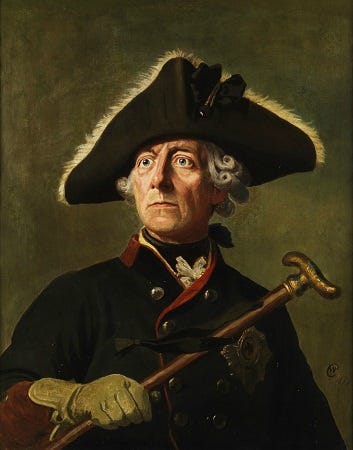
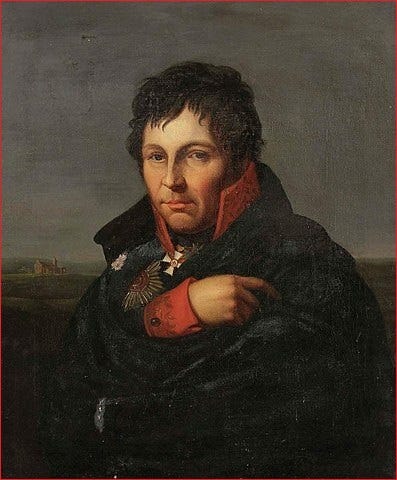
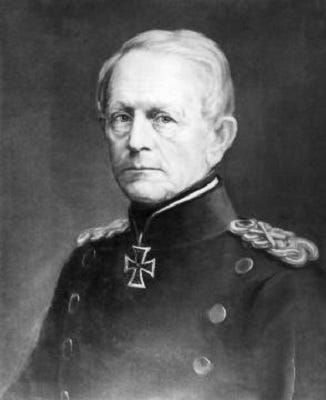
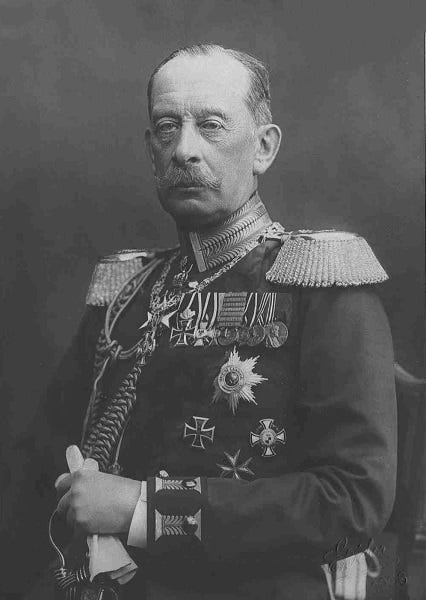
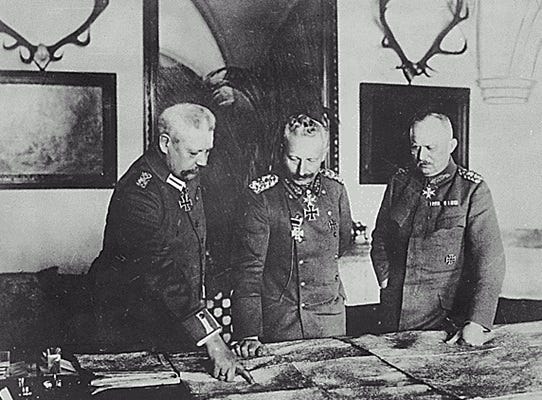

The German invasion of Belgium was one of the great strategic mistakes of the war.
A mistake that German civilians would rue in 1919 as they starved under the British blockade.
You mention that the general staff did not coordinate with the foreign office.
True.
But I don't think that it would have made a difference if they had coordinated.
Germans are naturally arrogant when they think that they are winning ("The Hun is either at your feet or at your throat." - Churchill).
That arrogance leads them to do things that thinking people would never consider. The Zimmermann telegram is a case in point.
(For a modern example, see German foreign minister Heiko Maas and his toadies sneering at Trump at the UN.)
German diplomacy is often what Thucydides described. The problem is that the Germans often misjudge their strength.